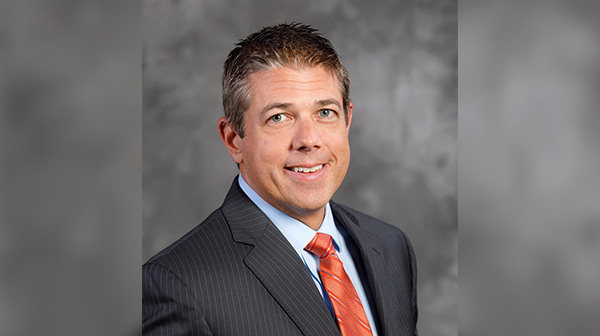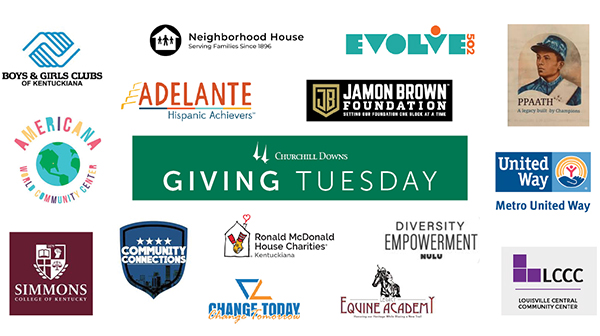Churchill Downs Incorporated Statement on Today’s Vote on SB 120
LOUISVILLE, KY., (Feb. 11, 2021) – Churchill Downs Incorporated released the following statement today regarding Senate Bill 120, legislation to keep historical horse racing in Kentucky:
“As the House prepares to vote as early as this afternoon on Senate Bill 120, we are asking our Louisville-area legislators to please pass this critical legislation and save local jobs. We are incredibly proud to be a part of this community and are grateful to call Louisville home. Senate Bill 120 is about protecting jobs right here in our city that are held by our parents, siblings, friends and neighbors. That’s why we’re asking you to move this legislation forward.
“Horse racing and the equine industry are such an important part of Louisville’s history, and historical horse racing will allow that tradition to continue. We encourage you to vote yes on Senate Bill 120 and save the jobs and economic development that will help our city grow and flourish.”
About Churchill Downs Incorporated
Churchill Downs Incorporated is an industry-leading racing, online wagering and gaming entertainment company anchored by our iconic flagship event, the Kentucky Derby. We own and operate three pari-mutuel gaming entertainment venues with approximately 3,050 historical racing machines in Kentucky. We also own and operate TwinSpires, one of the largest and most profitable online wagering platforms for horse racing, sports and iGaming in the U.S. and we have seven retail sportsbooks. We are also a leader in brick-and-mortar casino gaming in eight states with approximately 11,000 slot machines and video lottery terminals and 200 table games. Additional information about CDI can be found online at www.churchilldownsincorporated.com.
Information set forth in this news release contains various “forward-looking statements” within the meaning of the Private Securities Litigation Reform Act of 1995 (the “Act”), which provides certain “safe harbor” provisions. All forward-looking statements made in this news release are made pursuant to the Act. Forward-looking statements are typically identified by the use of terms such as “anticipate,” “believe,” “could,” “estimate,” “expect,” “intend,” “may,” “might,” “plan,” “predict,” “project,” “seek,” “should,” “will,” and similar words, although some forward-looking statements are expressed differently.
Although we believe that the expectations reflected in such forward-looking statements are reasonable, we can give no assurance that such expectations will prove to be correct. Important factors that could cause actual results to differ materially from expectations include the following: the effect of economic conditions on our consumers’ confidence and discretionary spending or our access to credit; additional or increased taxes and fees; public perceptions or lack of confidence in the integrity of our business or any deterioration in our reputation; loss of key or highly skilled personnel; restrictions in our debt facilities limiting our flexibility to operate our business; general risks related to real estate ownership, including fluctuations in market values and environmental regulations; catastrophic events and system failures disrupting our operations; online security risk, including cyber-security breaches; inability to recover under our insurance policies for damages sustained at our properties in the event of inclement weather and casualty events; increases in insurance costs and inability to obtain similar insurance coverage in the future; inability to identify and complete acquisition, expansion or divestiture projects, on time, on budget or as planned; difficulty in integrating recent or future acquisitions into our operations; costs and uncertainties relating to the development of new venues and expansion of existing facilities; risks associated with equity investments, strategic alliances and other third-party agreements; inability to respond to rapid technological changes in a timely manner; inadvertent infringement of the intellectual property of others; inability to protect our own intellectual property rights; payment-related risks, such as risk associated with fraudulent credit card and debit card use; compliance with the Foreign Corrupt Practices Act or applicable money-laundering regulations; risks related to pending or future legal proceedings and other actions; inability to negotiate agreements with industry constituents, including horsemen and other racetracks; work stoppages and labor issues; changes in consumer preferences with respect to Churchill Downs Racetrack and the Kentucky Derby; personal injury litigation related to injuries occurring at our racetracks; weather and other conditions affecting our ability to conduct live racing; the occurrence of extraordinary events, such as terrorist attacks and public health threats, including the ongoing impact of the novel coronavirus (COVID-19 virus); changes in the regulatory environment of our racing operations; increased competition in the horseracing business; difficulty in attracting a sufficient number of horses and trainers for full field horseraces; our inability to utilize and provide totalizator services; changes in regulatory environment of our online horseracing business; number of people wagering on live horse races; increase in competition in our online horseracing; uncertainty and changes in the legal landscape relating to our online wagering business; continued legalization of online sports betting and iGaming in the United States and our ability to predict and capitalize on any such legalization; inability to expand our sports betting operations and effectively compete; failure to manage risks associated with sports betting; failure to comply with laws requiring us to block access to certain individuals could result in penalties or impairment with respect to our mobile and online wagering products; increased competition in our casino business; changes in regulatory environment of our casino business; and concentration and evolution of slot machine manufacturing and other technology conditions that could impose additional costs; and inability to collect gaming receivables from the customers to whom we extend credit.
Press Contacts
Nick Zangari
Vice President, Treasury, Investor
Relations & Risk Management
Phone: (502) 394-1157
Email: [email protected]



